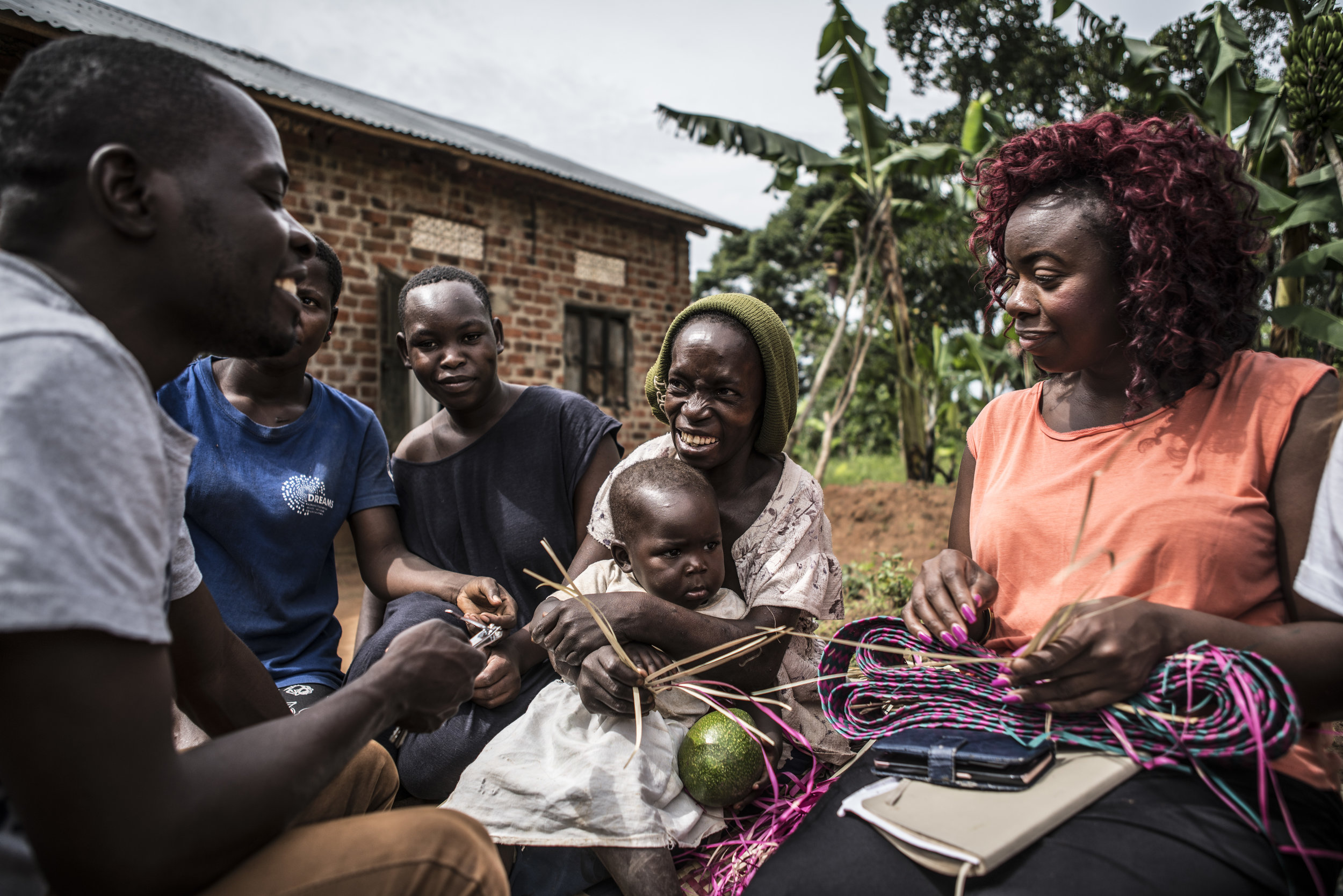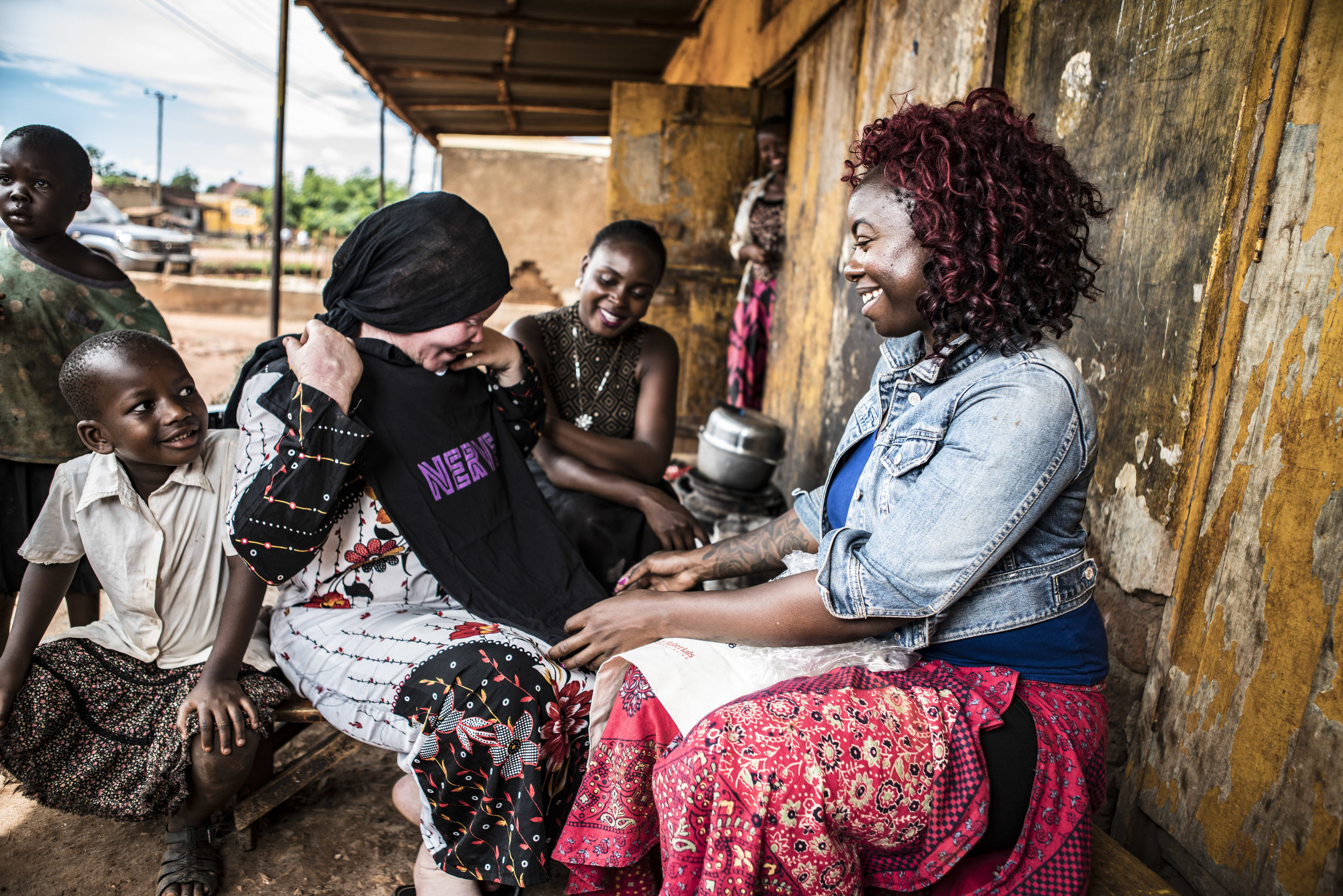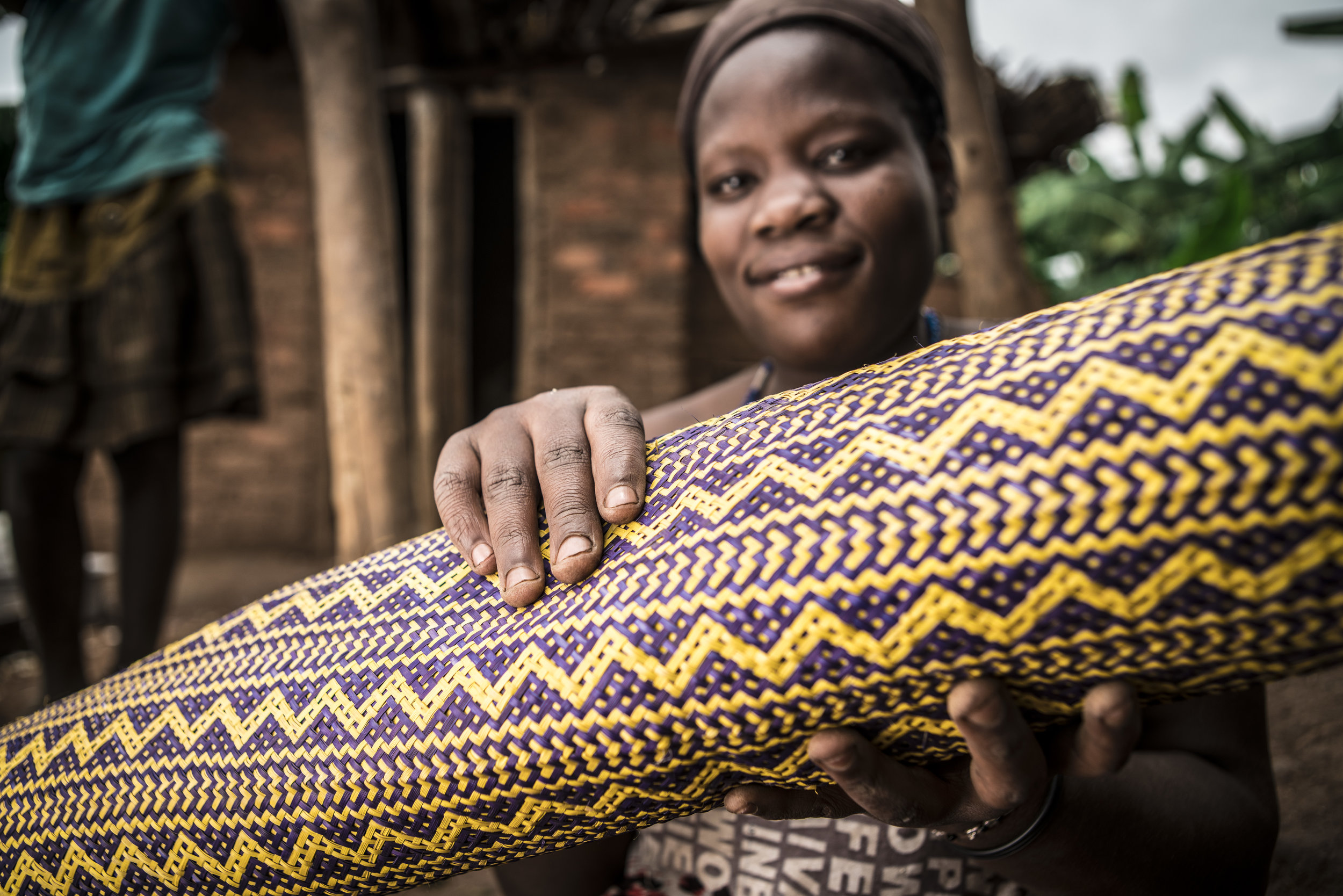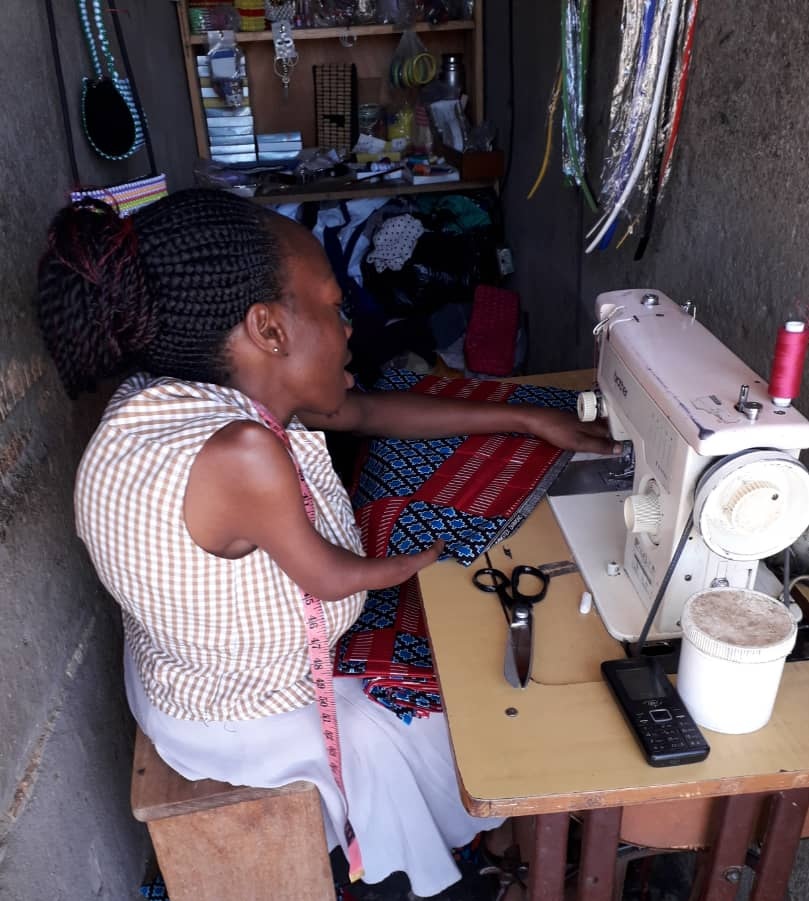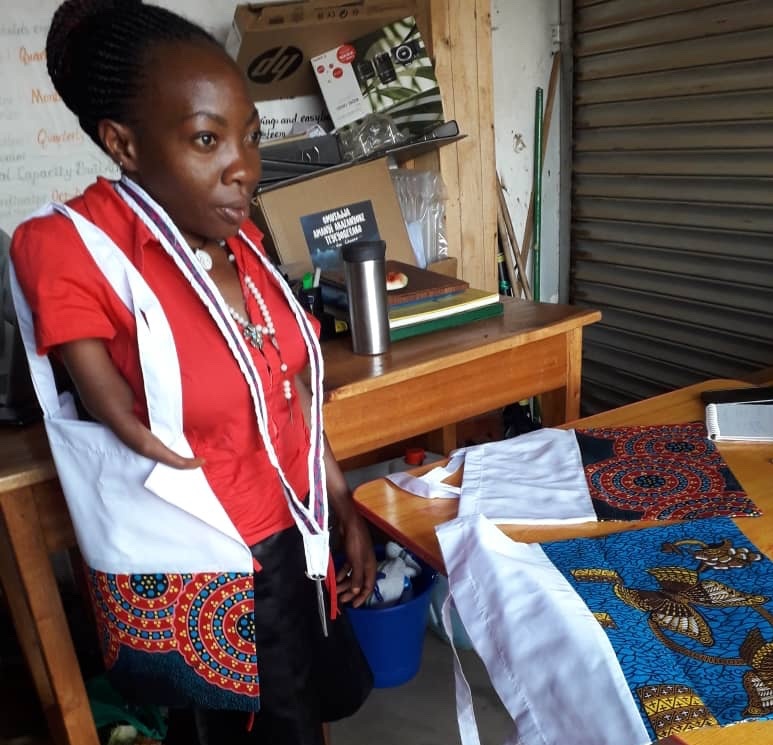The Nerve Boutique: a marketing solution
By Richard Musisi of MADIPHA Uganda.
Naroga Nakasiba photographed with her daughter Annette’s hand-woven mats, which had been sitting in their house for 6 months, ready to be sold, but with no access to local markets.
In the Greater Masaka area and Uganda at large, disability and poverty are hard to separate, and the situation worsens when individuals with disabilities become infected with HIV&AIDS. The triple burden of disability, poverty and HIV&AIDS, coupled with family negligence, leave no chance for persons with disabilities (PWDs) to live a happy life.
In an effort to address this problem, the Masaka Association of Persons with Disabilities living HIV&AIDS (MADIPHA), began mobilising and supporting people with disabilities, living with and affected by HIV&AIDS. Here we engage our community in different income generating activities (IGAs), such as craft-making, tailoring and weaving to improve their income earning at family level, so they meet their basic needs; daily meals and refreshments, transport fares to attend monthly HIV clinic appointments, school fees for their children, shelter, clothing and other domestic needs.
Despite embracing this initiative, members of MADIPHA have struggled to find steady and sustainable markets to sell their products, which resultantly sit in their homes; discouraging them from continuous production.
Fortunately, our partnership with The Nerve Network has restored hope for members, as it has provided international market opportunities for their surplus products which can now be sold online and at Nerve’s events. The excitement and moral is high as the online shop will solve their biggest challenge of markets scarcity and they are currently working hard to improve the quality of their products to compete favourably at the international market. People like Juliet, Annette, Cate and Judith can now have regular earnings from their work and in return, they will afford their basic domestic needs. Above all, they will gain respect, self esteem and considered useful people contributing to the development and welfare of their families and the community in general.
We thank you for this opportunity.
